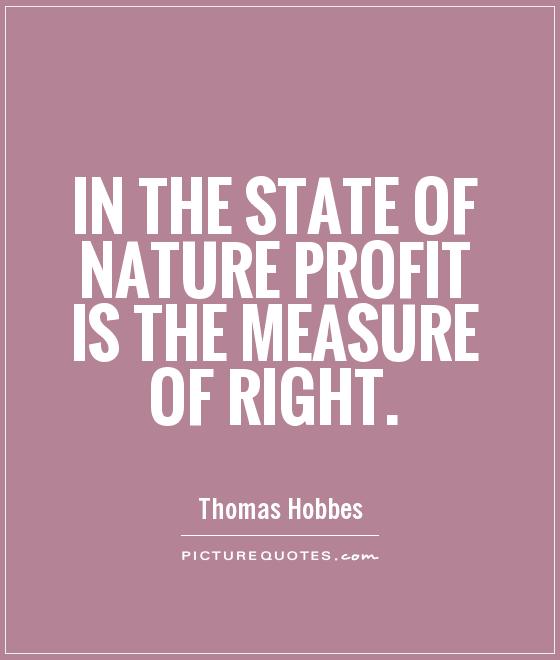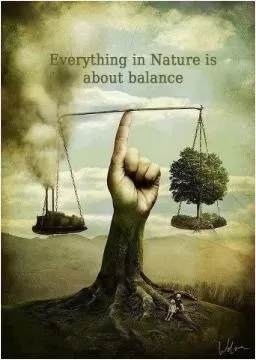In the state of nature profit is the measure of right

In the state of nature profit is the measure of right
Thomas Hobbes, a prominent English philosopher of the 17th century, is often associated with the idea that "in the state of nature profit is the measure of right." This concept, found in his seminal work Leviathan, reflects his belief in the necessity of a strong central authority to maintain order and prevent the chaos that would ensue in a state of nature.Hobbes argued that in the absence of a governing body, individuals would be driven by their own self-interest and desire for profit. Without a higher power to enforce laws and regulations, people would be free to act as they pleased, leading to a constant state of conflict and competition. In such a state, profit would become the ultimate measure of right, as individuals would seek to maximize their own gains at the expense of others.
Hobbes believed that this state of nature was inherently unstable and unsustainable, as it would inevitably lead to a "war of all against all." In order to avoid this chaos, he argued for the establishment of a social contract in which individuals would surrender some of their freedoms to a sovereign authority in exchange for protection and security. This sovereign authority would have the power to enforce laws and maintain order, ensuring that profit was not the sole measure of right.
Hobbes' ideas have been highly influential in the development of political theory and philosophy. His concept of profit as the measure of right highlights the importance of a strong central authority in maintaining social order and preventing the breakdown of society. While his views have been criticized for their authoritarian implications, they have also sparked important debates about the nature of power, authority, and the role of government in society.
Overall, Hobbes' assertion that "in the state of nature profit is the measure of right" serves as a powerful reminder of the potential consequences of unchecked self-interest and the importance of a just and effective government in ensuring the well-being of society as a whole.












 Friendship Quotes
Friendship Quotes Love Quotes
Love Quotes Life Quotes
Life Quotes Funny Quotes
Funny Quotes Motivational Quotes
Motivational Quotes Inspirational Quotes
Inspirational Quotes